#PlasticFreeJuly
As part of Plastic Free July our team at CraftCourses HQ has been sharing their favourite ways to cut down on unnecessary plastics. We've covered the kitchen, the bathroom and lifestyle (on the go) so for our final installment we are focusing on the 'greenest' area of our lives... the garden!
We think about gardens as a natural place, but with plastic plant pots, plastic labels, plastic bags of compost and even plastic furniture and toys, most of us will find that our outside space is in need of a tidy up!
So we've been finding ways to banish pesky plastic from our gardens, and save money at the same time!
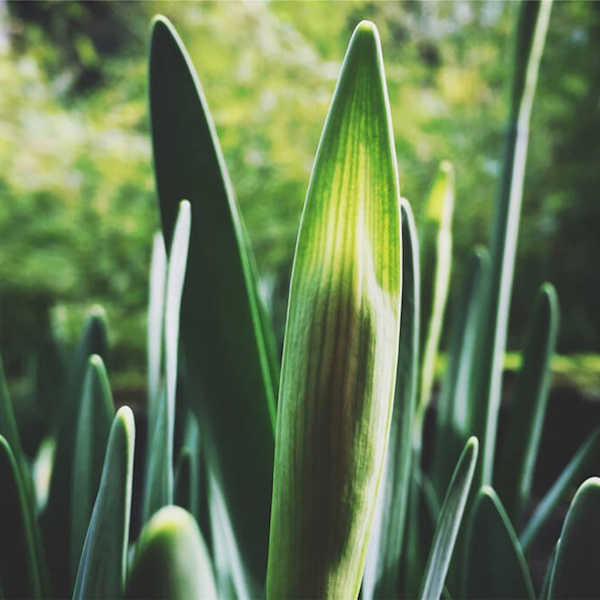 Plastic free: as nature intended!
Plastic free: as nature intended!
Pots
Don't be fooled by their looks - these biodegradable plant pots may look like plastic but are 100% plastic-free.
Vipots are recommended by Alys Fowler who uses them and says they can last a few years in the garden - we're not that far into using them yet, but think that is a pretty good lifespan.
And even better, once they do break you can chuck them in the compost bin.
For seedlings we like to use old toilet roll tubes: they are the perfect size and when the time comes to plant them out you can pop the whole thing in the ground. The cardboard tube will decompose into the ground.
And if you are using terracotta pots - don't forget to save the broken ones for crocks to improve drainage in plant pots.
Zero waste. Just as we like it!
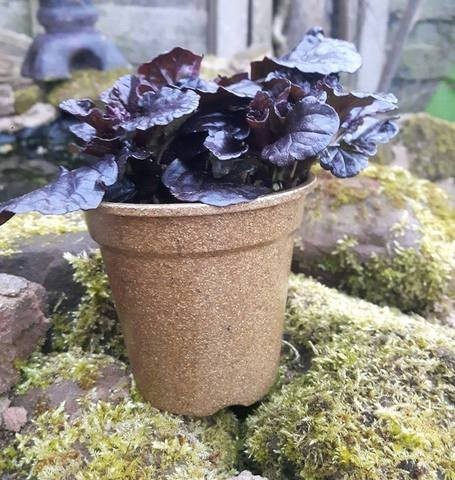 Vipots: biodegradable plant pots
Vipots: biodegradable plant pots
Compost
Making your own compost is a great way to recycle unwanted biodegradable and organic matter, which may otherwise end up in landfill.
Plus, it stops you buying plastic bags of the stuff saving you money too!
All you need is some fruit and vegetable waste, coffee grounds and paper or cardboard. You can even add hair (pet or human) as a source of nitrogen.
Leaf mould is fantastic for your garden and we like these biodegradable leaf sacks from Project the Planet. It helps to suppress weeds, which reduces the need to use plastic sheeting: win win!
If you don't have leaf mould you could use straw or cardboard instead of the black plastic sheeting too.
 Homemade compost from vegetable waste
Homemade compost from vegetable waste
Run it by your worms
Worms make some of the best compost going and establishing a wormery in your home or garden will turn uncooked food waste into liquid feed and rich organic vermicompost easily and efficiently.
Please note that the worms don't much like onions, garlic or any citrus fruits as these are too acidic. They do like a stable temperature. We love this terracotta coloured one from Original Organics which we keep inside the CraftCourses office during the winter and feed tasty lettuce leaves (and shredded confidential papers, so it's multi-purpose!). It's amazing how fond you can become of worms, they really are the most intriguing creatures!
For those who want a compost bin they can chuck anything in including cooked food, meat and fish, these hot composters from Great Green Systems are the bees knees. They work so fast you can't fill them up! And they even come with their own winter jacket for the colder months. Bless.
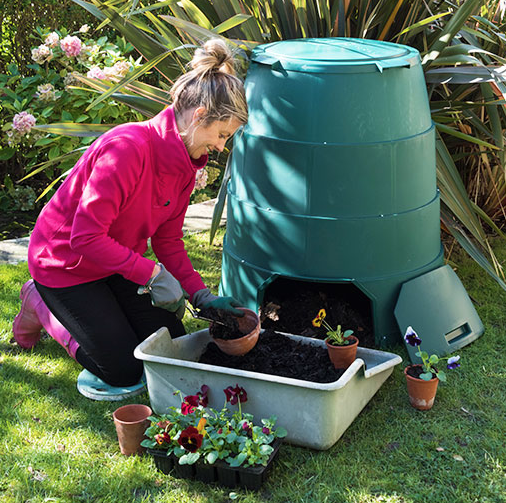 'Green Johanna' hot composter
'Green Johanna' hot composter
Labels
There really is no need to use plastic labels in the garden, switch it up with offcuts of woods, wooden lollipop sticks, split bamboo or slate.
Seeds
Seek out seeds that come in paper envelopes, rather than plastic bags or packaging.
Or better still, we like to collect seeds from our own gardens and do swaps with neighbours and friends!
We're always thinking of the financial savings too!
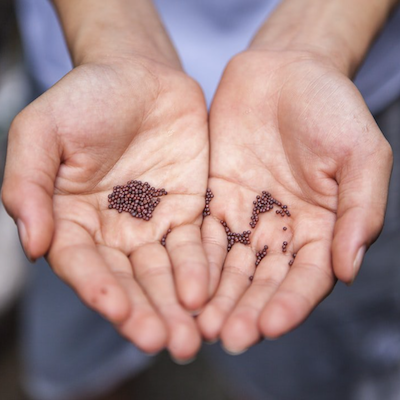 Gather seeds from your garden, and share them!
Gather seeds from your garden, and share them!
Greenhouse
If you are fortunate to have enough space a greenhouse is a great way to grow your own produce.
With a greenhouse you can grow enough salad to keep you going throughout the year, meaning that you can ditch the plastic bags of leaves and other plastic wrapped ingredients.
Need some tips?
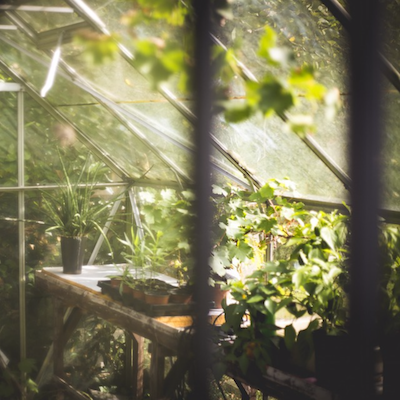 Grow your own in a greenhouse
Grow your own in a greenhouse
If you enjoyed this browse through some of our other blog articles on eco, green & sustainable lifestyles >



